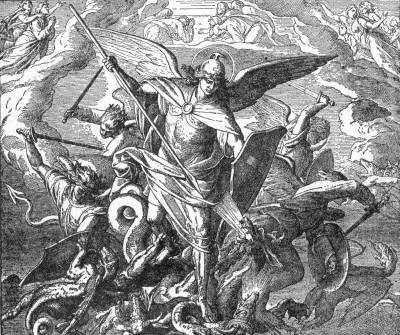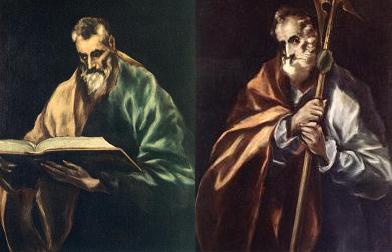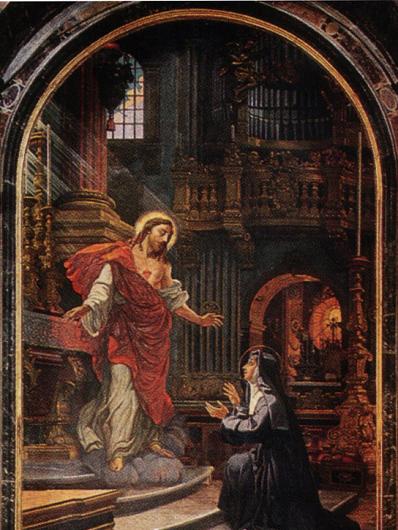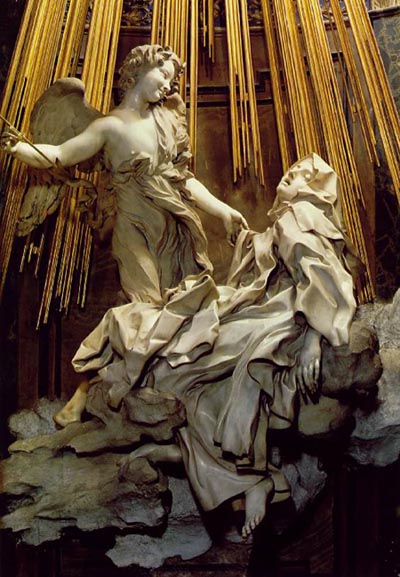Arrogance is a common thing, especially in our modern age.
Arrogance is also a dangerous thing, especially in our modern age.
Arrogance cuts us off from reality, setting us behind the walls of knowledge and so-called wisdom we have built up for ourselves (and indeed modern science has built these walls very high and very deep), but as we have seen again and again, reality inevitably breaks through these walls.
Reality inevitably tramples the arrogant.
Arrogance also walls us off from faith. Arrogance cuts us off from recognizing the limits of our understanding and our need to rely on the wisdom of God.
This truth is beautifully illustrated at the end of the long form of today's
Gospel (
Mark 10:2-16):
And people were bringing children to him
that he might touch them,
but the disciples rebuked them.
When Jesus saw this
he became indignant and said to them,
"Let the children come to me;
do not prevent them,
for the kingdom of God
belongs to such as these.
Amen, I say to you,
whoever does not accept the kingdom of God
like a child
will not enter it."
Then he embraced them
and blessed them,
placing his hands on them.
Are we like the arrogant disciples or are we like the children?
***
It is easy for us, of course, to say that we are like the children, but many of us may be tested in this assertion by the first part of today's Gospel, especially by our Lord's politically incorrect words:
"Whoever divorces his wife and marries another
commits adultery against her;
and if she divorces her husband and marries another,
she commits adultery."
Many of us might get more than a little bit upset at these words. All of us know people - good people, moral people, devout people - who have divorced and remarried. Indeed, some of us have been divorced and remarried ourselves. The appellation of adulterer seems over-the-top, if not cruel.
But they are the words of Christ, our loving savior.
Are we reacting to our Lord's words like the arrogant disciples or like children of the kingdom of heaven?
The question of the divorced and remarried is indeed a sensitive topic and the subject of much arrogance, from more than one side: the arrogance of those who exalt the norms of modern society above the teaching of Christ, the arrogance of those who defend their own self-esteem at the expense of objective truth, and the arrogance of those who blithely condemn the sins of others while quietly passing over the sins to which they themselves tend.
Are we arrogant disciples or children of the kingdom of heaven?
Lord Jesus Christ, son of the living God, be merciful to me - a sinner.Arrogance cuts us off from truth and from our need for growth.
We need to be like little children accepting the kingdom of heaven.
We need to step down from our perches of defensiveness or self-righteousness.
We all fall short of the ideal: we dare not damn those who fall short (neither ourselves nor others), nor dare we turn the ideal on its head in order to stoke our self-esteem, nor dare we despair of the ideal.
The ideal remains true. We may live in a messy world, "
but from the beginning it was not so" (
Matthew 19:8b).
But from the beginning of creation,
God made them male and female.
For this reason
a man shall leave his father and mother
and be joined to his wife,
and the two shall become one flesh.
So they are no longer two but one flesh.
Therefore what God has joined together,
no human being must separate.
May we not be arrogant, but may we always help each other - as best as we can and relying on the grace of Christ - strive toward the ideal, ask for God's mercy when we fall short, grow more fully in the truth, and become more and more like children in the kingdom of heaven.
(from a previous post)
 Saint Michael the Archangel
Saint Michael the Archangel A Penitent Blogger
A Penitent Blogger


 "The sacred heart of Christ is an inexhaustible fountain and its sole desire is to pour itself out into the hearts of the humble so as to free them and prepare them to lead lives according to his good pleasure.
"The sacred heart of Christ is an inexhaustible fountain and its sole desire is to pour itself out into the hearts of the humble so as to free them and prepare them to lead lives according to his good pleasure.
















